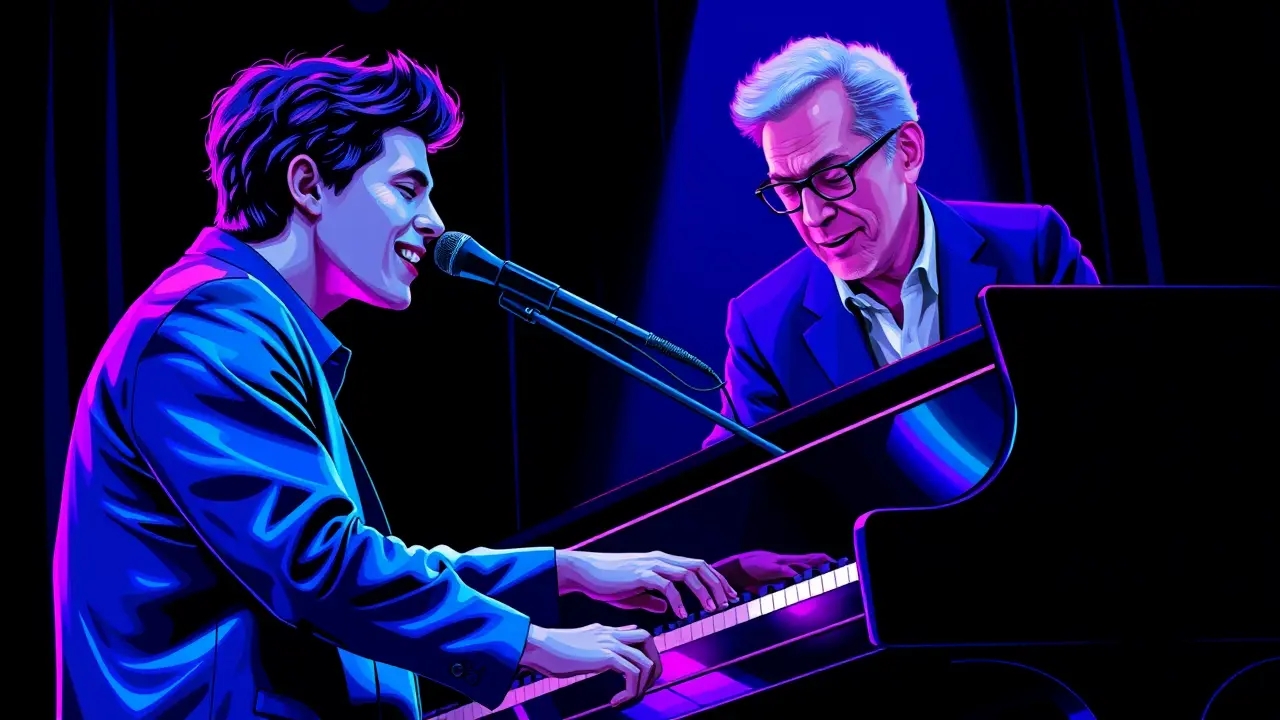Charlie Puth and Jeff Goldblum Perform Cyndi Lauper Cover
In a moment that felt less like a scheduled performance and more like a rare alignment of celestial bodies in the music universe, the Blue Note Jazz Club was recently graced by the kind of spontaneous collaboration that vinyl collectors and festival junkies dream about. Singer-songwriter Charlie Puth, whose pop sensibilities are etched into the modern pop canon, found himself sharing the stage with none other than Jeff Goldblum, the actor whose sideline as a genuinely accomplished jazz pianist is as wonderfully unpredictable as his film roles.Their instrument of choice for this improvisational summit was Cyndi Lauper's timeless 1983 ballad, 'Time After Time,' a track that has been covered by everyone from Miles Davis to Willie Nelson, yet somehow, this iteration felt entirely new. Puth, with his pristine vocal control and a harmonic understanding that runs deeper than his TikTok-famous snippets suggest, leaned into the melody with a soulful vulnerability, treating the lyrics not as a relic but as a living, breathing narrative.Opposite him, Goldblum wasn't just accompanying; he was conversing. His piano work, infused with the playful dissonance and swinging rhythms of classic jazz, wove around Puth's voice, creating a call-and-response that was both sophisticated and deeply human.Watching Goldblum at the keys is to witness a man completely in his element—his fingers dancing with a casual virtuosity, his signature theatrical pauses giving way to cascading runs that felt both improvised and inevitable. This wasn't a mere cover; it was a re-contextualization, pulling a pop standard from the 80s into the intimate, smoke-free haze of a legendary jazz venue, proving the song's durable emotional core.The Blue Note, a hallowed ground that has hosted legends from Art Blakey to Norah Jones, provided the perfect backdrop for this genre-fluid dialogue, a space where the rules of pop radio give way to the raw, unscripted magic of live jazz. For anyone who follows the Grammys or the often-predictable cycles of pop music, a moment like this serves as a vital reminder that the most compelling artistry often happens off-script, in the spaces between defined genres, where a pop star's precision meets a film star's jazz-inflected soul. It was a single song, yes, but it played like an entire album's worth of musical conversation—a testament to the enduring power of a great melody and the alchemy that occurs when two distinct artists from different worlds decide, on a whim, to build a bridge between them.
It’s quiet here...Start the conversation by leaving the first comment.
© 2025 Outpoll Service LTD. All rights reserved.
